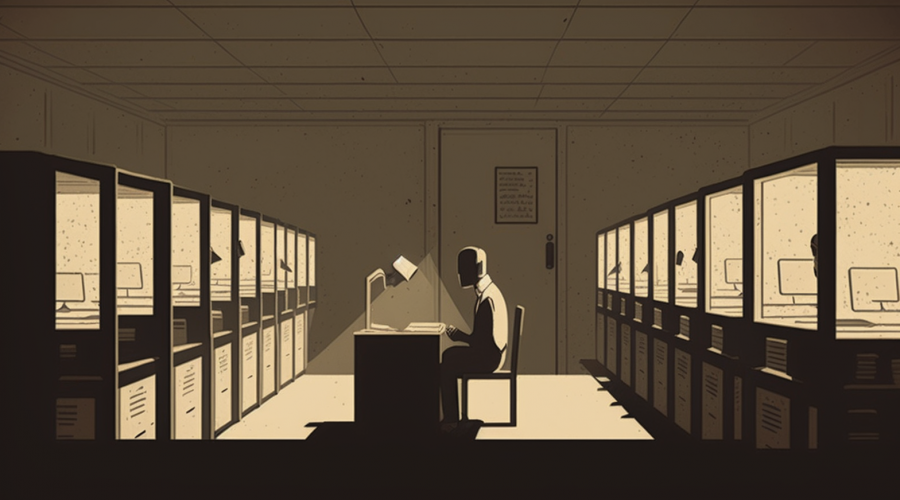How to talk to friends and family about mental health

Your heart is heavy.
You're on the brink of tears multiple times each day.
Your mind is a minefield, triggering off thoughts and emotions that you can't escape.
You feel like you're existing in someone else's body.
You're worried about yourself and you know you need to tell someone. But who do you tell, where do you start, what do you even say?
Our mental health is a fundamental part of our wellbeing, one which significantly contributes to our existence and the lives of those around us. It drives our thoughts, emotions and behaviour. When our mental health is compromised or we're unable to make sense of our internal state, it's easy to withdraw and shut the world out. Yet, if we've learnt anything about wellbeing in the last few years, it's that true wellbeing is a collective construct.
Historically, mental illness and mental health were topics shrouded in shame or secrecy. Today there are various mental health campaigns aiming to de-stigmatise mental health conditions and raise awareness including RUOK, World Mental Health Day and Lighten the Load. We see therapists and mental health professionals utilising online platforms more than ever before: TikTok, Instagram, YouTube, facebook and mobile apps are full of tools and skills to manage distress and improve wellbeing.
Despite the ever-present attention, we still hesitate to speak directly about our experience of mental health. How often do we get asked, “How are you?” by a loved one and give a sincere answer?
Talking about our personal struggles with family and friends can be a challenge for many of us because it’s an act of vulnerability. The fear of being judged or not believed, feelings of shame, lack of understanding—these are reasons I’ve been given as a counsellor for people's fear of opening up. Whether you tell your loved ones about your mental health condition is absolutely your choice. However, if you feel like you want to share with others, the process can be cathartic and provide support to navigate your feelings of being overwhelmed and uncertain. You're loved and cared for, and people will want to help you.
Here are some tried-and-true suggestions, from the experience of my own clients and others.
Write it down
Finding the words to name your feelings and experiences can feel hard at times, so before you begin a conversation with loved ones, it can be helpful to write down what you want to share about your mental health. You get to decide what you feel safe to discuss and the message you want to get across, so give yourself the space to let it flow on paper first. Writing can help to organise your thoughts and locate the boundaries between private information and the story that you will share. As you write, ask yourself, "What do I want my friends and family to know?"
Set the scene
Think of a location where you feel safe. This could be your home, a park or a beach. If you're sharing with a group or with an individual, you might want to consider space, light, noise, time of day—any aspect of the surroundings that will help you to ground yourself and provide a sense of comfort to ease any nerves or anxiety. Our environment can affect our emotions more than we realise, so choose your environment thoughtfully. How do you want to feel as you share this with your loved ones? What do you need around you to help you feel this way?
If you start to notice that you're becoming more concerned with making others feel comfortable, remind yourself this is an important conversation in which your own needs are most important in this moment. You're inviting people into your space. This can help you to be decisive in choosing what is right for you.
Share your truth
Owning your personal experience can be a powerful acknowledgement to yourself that you have been struggling, and now you are journeying towards healing. Using 'I' statements to speak from your lived experiences is a way of communicating your ownership. Even when people have the same diagnosis or mental health condition, they will have different experiences. When we talk about the impact of our diagnosis or condition, we can break down the misconceptions others may have. Being specific also gives you the opportunity to ask others for what you need.
You could try starting with, "I want to share something I've been struggling with.. " or "I've been isolating myself for the last few weeks because... "
Importantly, you don't need to convince anyone of the validity of your experience. That's not why you're sharing. You're just letting them know how things have been, and you only need to share what you want to share.
Once you've opened the door to discussion, you might expect your loved ones to respond in a certain way. However, it may take some time for others to find the balance between support and intrusion. There is no perfect way to navigate this vulnerable new space and people won't automatically know what to do. It's okay to be direct. If those relationships are solid, a direct conversation may temporarily bruise an ego, but it won't break the relationship.
The right support
If you’re already in therapy, you might want to practise with your therapist what you want to say to your loved ones. This can reduce any anxiety and help you to set boundaries about how much you feel safe and comfortable sharing. It can also be helpful to identify who you want to share with. While you may have friends and family that you love dearly, sometimes they may not be the right people to share your struggles with. They may not have the capacity to support you. By being honest with yourself about that, you can minimise disappointment or hurt.
One way to identify what you need and which of the people in your life are most able to provide it, is to separate solutions from support.
Solutions are often practical needs we need help with: “I need help with finding a counsellor.”
Support is, “I'm really struggling today, and I just need someone to listen. Are you available for a call?"
It is equally important that we have our practical and our emotional needs met. Which do you need to find in this conversation? Ask yourself, "How do I need people to show up for me?" And, as often as necessary, remind yourself that it's okay to need that.
What if people don’t respond as you hoped?
Unfortunately, there will be times when we share our mental health struggles with others, and their response is not what we hoped for. This can be painful. People are often responding from their own place of understanding about mental health. Their understanding may be affected by their age, access to information, emotional state or the beliefs they were raised with. If this is the first time someone has confided in them, you'll be getting their first, unprepared, response. Instead of the help you were seeking, you may be met by their feelings of concern, guilt, sadness or frustration that they can't immediately fix things for you.
That initial response doesn't have to be the end of the discussion. While it's not your job to educate people about your mental health condition, if someone is open to learning more—and you have the capacity—your willingness to take some space, or offer information at a later stage can be helpful to aid their understanding. They may want to help, but they may not know how.
People may know about mental health conditions; however, few people know how to support a loved one through their mental health journey effectively. Often, people who want to be supportive struggle to find the right words, plagued by fear: "Will they be offended, is that the right thing to say, what if I make it worse?"
If your loved ones don't say anything, it's okay to acknowledge that no words may feel like the right words in that moment. Silence also gives us space to reflect and process. If you find yourself becoming curious to know what they're thinking, there is potential to keep building understanding by asking if they have any questions.
Community and connection to others are fundamental to our mental health and wellbeing. Whether it is your loved ones or others who make themselves available for you, there will be people who can and will support you. If you don’t see the right support among your whanau, you can construct a support network by finding local services, online groups and community groups that allow you to feel safe and cared for. You don't need to shoulder this alone. While there will be many times when you won't feel like it, a connection that could transform your wellbeing is always worth reaching for.










